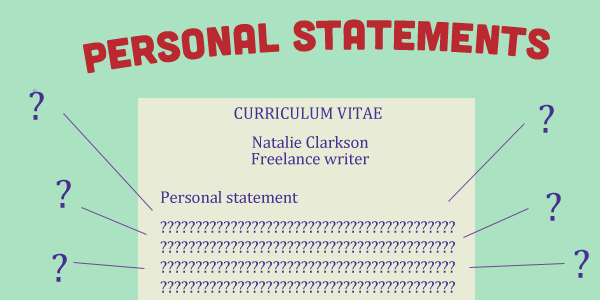An important aspect of an effective CV is about including a personal statement. This is sometimes also called a profile or career summary. This allows the recruiter to quickly identify strategic benefits that candidates would be able to add to their organization. The CV in itself is a self-marketing document which aims to persuade recruiters to contact and interview the candidate. The personal statement is conducive to making this happen.
Candidates often struggle with this aspect of their resumes and by following a few simple guidelines, this can be made easier. Generally, a well-written statement should be between 50 and 200 words. However, the candidate should focus on keeping it concise. The cover letter would provide all the scope to elaborate further and bring in more engaging information. In order to write a target personal statement, the job specification would also need to be carefully considered. This would ensure that the skills and experience reflect the job requirements. In order to render the statement more personable, the first-person style is preferred. The idea would be to target transferable skills in the statement.
An ideal personal statement should provide brief descriptions of past achievements and skills acquired and how these can be transposable to future organizations. The candidate should also mention his/her career aim in order to guide recruiters in determining whether the candidate’s expectation and their offering would be matching. For instance, candidate would be mentioning skills acquired in working for a particular sector and industry and that they would aim to continue their career within the same industry but with more responsibilities and tasks.





